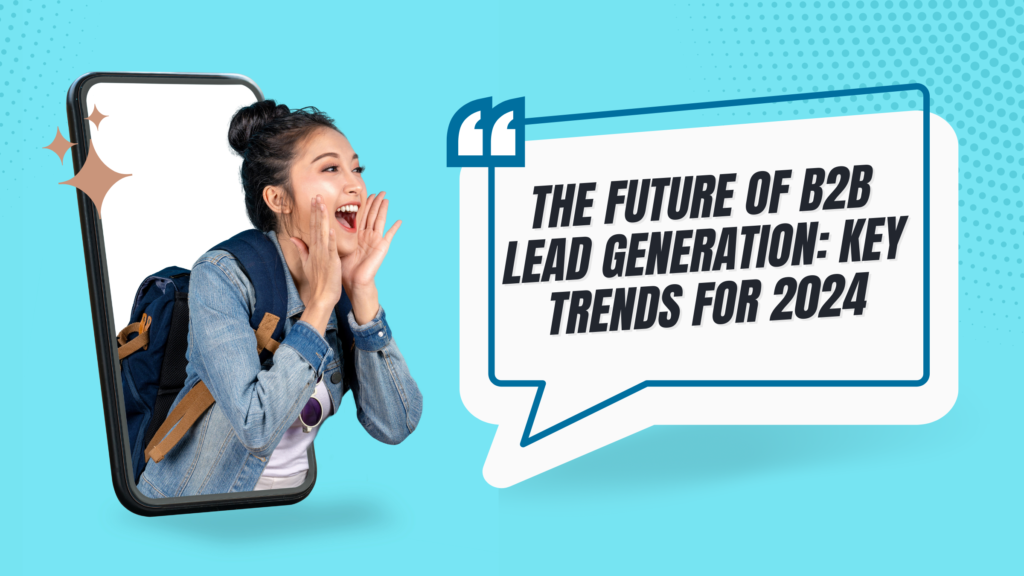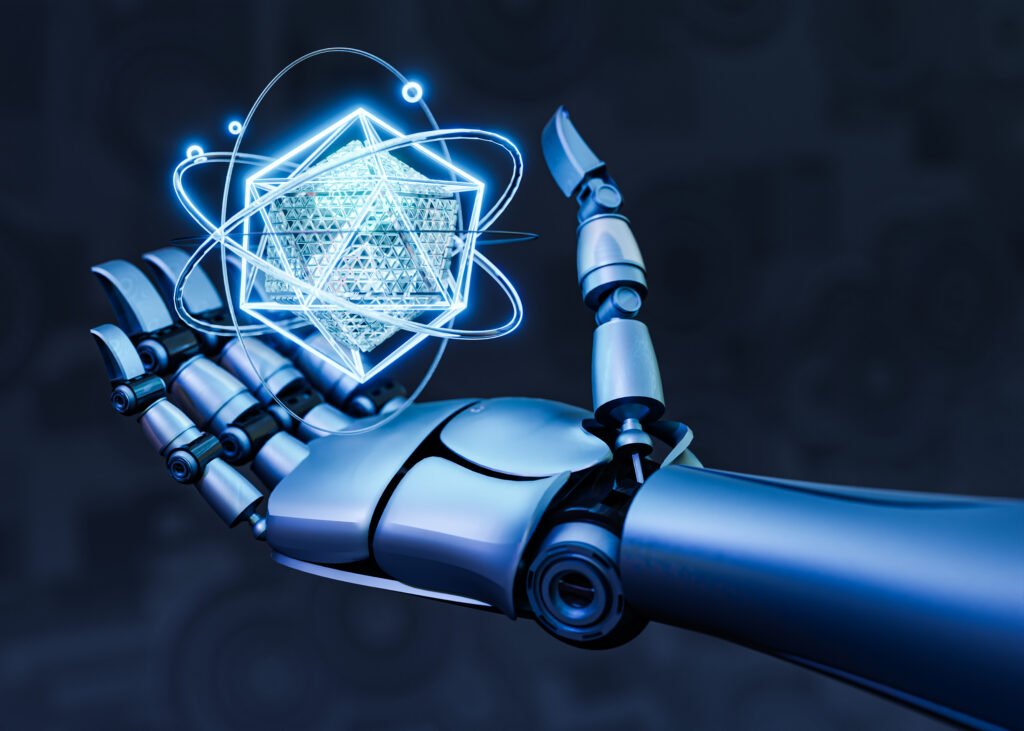The Future of B2B Lead Generation: Key Trends for 2024

In a speed-driven, changing world of B2B marketing, lead generation strategies have to transform continuously if they have to remain effective. With the rapid technological innovation, changing buyer behaviours, and increasing reliance on data-driven decision-making, the future of lead generation in B2B looks to change a lot. For such firms as TechB2BShoot, these trends make it possible to remain the leader in the fast-evolving technology world, therefore retaining and increase competitive advantage and leading sustainable growth. This blog will delve into some of the most emerging trends in B2B lead generation that every marketer needs to closely watch.
1. AI and Machine Learning: Revolutionizing Lead Generation
Artificial Intelligence (AI) and Machine Learning (ML) are no more buzzwords but key constituents of any modern B2B lead generation strategy. AI-driven tools can quickly make sense of reams of data, identify patterns and predict outcomes, while running on machine learning algorithms that automate a repetitive, manual, and time-consuming task. For example, artificial intelligence could enhance lead scoring by predicting, with the use of historical data analysis, which leads are most likely to convert; thus, the sales team could prioritize efforts accordingly.
Moreover, AI-driven chatbots and virtual assistants are also changing the way businesses communicate with potential leads. They help in real-time engagement with the visitors on a website, answering their queries, and successfully moving a potential down the sales funnel, while collecting valuable data. As AI and ML technologies improve, so does their role in the B2B lead generation process, offering ever more sophisticated and customized experiences for potential clients.

2. Growth of Account-Based Marketing (ABM)
ABM has been at the top of the B2B agenda, and its appeal does not appear to wane with time. Essentially, ABM is the strategy of targeting high-value accounts by crafting personal, account-based campaigns as opposed to throwing a very wide net with generic marketing efforts. This implies that more intelligent use is being made of one’s marketing resources on leads likely to turn profitable in the long run.
ABM’s future owes to being integrated with AI and data analytics to drive even more precise targeting and personalized messaging. Most importantly, this will enable AI to analysed data across multiple touchpoints, giving marketers so much insight into what goes on with target accounts that content and outreach can be highly tailored.
3. Personalization at Scale
While personalization has been part of B2C marketing for a number of years now, it is only just starting to have a big impact on B2B lead generation. Today’s B2B buyer needs the same level of personalization as customers want when they buy their next shirt or pair of shoes online, and any business that is not able to deliver on that expectation faces being swept aside by competitors.
But the real challenge in B2B marketing is how you drive personalization at scale. That’s where AI and advanced analytics come in: giving businesses the ability to create personalized content, offers, and messaging that show a deep understanding of the behaviour, preferences, and needs of each lead. In the future, personalization will not be only about email marketing and website content but will permeate the whole customer journey experience, starting from the first point of contact and onboarding to after-product-purchase engagement.
4. Data-driven decision making
Data has always been at the be-all and end-all to any effective form of marketing. But the future of B2B lead generation is going to be even more data-driven based in decision-making. With such huge amounts of available data places and continually emerging analytical tools, today’s marketer is standing on unprecedented insight levels into their target audiences.
Being able to turn data into action will determine success. For example, predictive analytics can help companies project future trends and behaviours, anticipating the needs of their leads in advance and answered proactively. On the other hand, tools for data visualization will take on great relevance, enabling marketers to interpret large data sets and communicate effectively with stakeholders.

5. Content Marketing Becomes More Important
If there’s one thing that probably hasn’t changed in B2B lead generation through the years, it’s content marketing. The value of better quality, higher quality, and more informative content has hardly plateaued now that buyers do more on their own and more research has to be done before decision-making than ever.
According to these experts, the future of content marketing will be the creation of highly engaging content that can profoundly meet the specific needs of the audience. Videos, podcasts, webinars, and virtual events will be activities that will take a more important role in attracting prospect attention and guiding them throughout the sales cycle.
6. The Impact of Privacy Regulations

With growing data privacy concerns and strict regulations like General Data Protection Regulations and the California Customer Privacy Act, B2B marketers will have to manoeuvre through these changing landscapes of lead generation. So, in the future, the dimension of transparency, consent, and ethical use of data would definitely have more weightage.
Marketers will have to take special care to ensure that such regulations do not come in the way of data and data processing practices through which leads can be acquired. This will mean that better data management tools will need to be adopted, the privacy policy will need to be revisited, and technology that can make such regulations compatible without having to compromise on the quality of lead generation will be invested in.
7. The Shift to Conversational Marketing
Conversational marketing is emerging; it’s the practice of engaging leads in real time with personalized one-to-one conversations. This is actually the antithesis to the mass impersonal application that many traditional marketing techniques suffer from.
Central to conversational marketing are tools such as chatbots, live chat, and messaging apps, which create a centrepiece to interact with leads with precision at the exact moment they’re showing interest. As these tools mature in their capacities, they will have the ability to involve deeper interaction that can establish trust and actually allow conversions.
Conclusion
Many trends are going to be responsible for change in the process of business engagement in creating and converting the same, so the future in B2B lead generation is bright. AI, account-based marketing, personalization, and conversational marketing are the trends now defining forerunners in this arena, which is offering new opportunities and giving a chance to keep competition at bay for companies like TechB2BShoot.
With that knowledge of the trends, you can stay with the times and shape your strategies to ensure effectiveness in lead generation in an ever-evolving landscape. Success is going to be in the embracing of new technologies, making data-driven choices, and the continuation of adapting the approach toward the audience.
